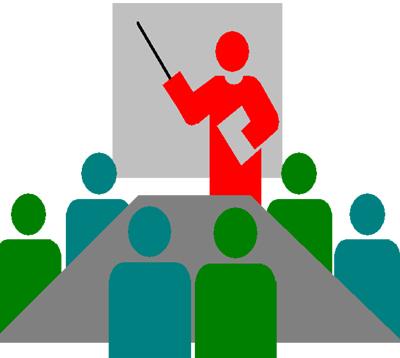Reducing training time in the contact centre

Staff turnover has always been a problem in a lot of customer service teams. While the UK average employee turnover rate is approximately 15%, in contact centres it averages around 25%. That means one in four agents leaves every year - although for some contact centres turnover can be as much as 60%.
One of the key impacts of staff turnover is increased training costs. On average, new agents receive 15 days of initial training as they are brought up to speed with company processes, products and how to deliver the best experience to customers. Additionally, over half of contact centres expect to increase their headcount in 2013, meaning that anything that can reduce this training time, without sacrificing quality, will have a major impact on increasing productivity. Staff will be able to begin serving consumers earlier, reducing waiting times and improving the customer experience.
Often training takes a long time because of the sheer volume of information agents need to master. Organisations, particularly those with wide product lines and complex processes, need to ensure agents can cope with any eventuality and this means learning a lot of facts and agreed responses. And when processes change or are updated, every agent needs to be re-trained, removing them from the front line for considerable time.
However knowledge management technology can help with training. Organisations such as Domestic & General and the NHS Business Services Authority (BSA) have deployed Eptica’s software to better manage knowledge within their contact centres and provide agents with access to consistent, comprehensive information.
Essentially Eptica’s self-learning knowledge management system (part of the Eptica Multichannel Customer Interaction Suite) allows agents to receive accurate, up to the minute answers by typing questions into the web-based system, which provides consistent and fast responses to every enquiry. Agents have the ability to flag where extra content is needed and provide feedback with a single click, ensuring answers are always optimised. Using Eptica reduces training time and increases customer satisfaction with higher First Contact Resolution rates as callers receive a comprehensive answer the first time they phone.
At Domestic & General the time taken to train new agents has decreased by 20%, while customer call times have been reduced by nearly a quarter (22%). The NHS BSA’s Eptica-powered project, known as Sherlock, ensures that its 230 agents can access accurate, up to date information in order to deliver fast, consistent answers to the 3 million calls received every year. Training time for new agents has dropped by 30% (against a predicted 20%) and the number of staff deployed on the service desk has been reduced by a third. In a recent survey 72% of agents said that Sherlock had made their jobs easier and 62% believed it had added to the customer experience.
Training is a significant part of every contact centre’s budget – using knowledge management technology to minimise the time it takes to bring new agents up to speed not only reduces costs but provides them with the right information to do their jobs going forward, leading to an improved customer experience now and in the future.







Comments